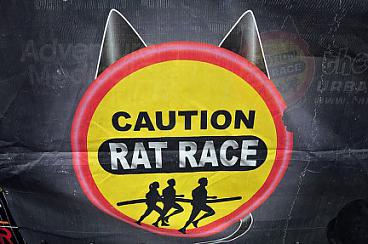Basic goods V - Getting out of the rat race
Basic goods V - Getting out of the rat race
Following their listing of basic goods, the things people actually need, in their book How much is enough? the Skidelskys made concrete proposals as to how to escape the rat race of ‘more, more, more’. In this last blog on this subject the question of what we can do about this as the SP’s European Parliament group takes centre stage. Another Europe is possible, but it will require an end to the domination of Eurocrats and of major corporations.

In a week the European Parliament recess will be over and the numerous meetings in Brussels and Strasbourg will begin once more. SP Euro-MPs have to follow our own agenda and not allow ourselves to be led by all of the EP’s agendas. How can you, if only to a small extent, contribute to corporations having to pay their taxes again, to reversing marketisation of public services, reducing poverty and ending the viewing of people as mere consumers.
What this actually means is that the whole Brussels system must be transformed, the influence of major corporations at all levels of decision-making reduced. Environmentalist organisations must play a bigger role, because they know better than anyone that economic growth leads to the exhaustion of our raw materials and should never be a goal in itself. In addition, fundamental research and independent researchers such as the Skidelskys must be listened to more attentively. I expect a great deal from the network of Euro-MPs concerned about transparency that I set up. On 2nd September we will be meeting and speaking with leading social organisations.
Big corporations must no longer be able to make use of all sorts of clever constructions which enable them to evade taxes. In Paris the club of industrialised countries, the Organisation for Economic Cooperation and Development (OECD) is working on proposals and we will shortly be meeting again with the Interparliamentary Network established by the OECD at my request. So we’re sitting in the front row and can ensure that our concerns are really addressed.
Lots of other things are unfolding in relation to the internal market. Just as the Skidelskys themselves recommend, the influence of advertising must also be reduced. Furthermore, things which are of major importance to all of us, such as good health care and good education, must once again become real public services. European market rules must not determine our policies. And competition policy must be transformed, not in the way favoured by the European Round Table of Industrialists, which is to allow ever bigger conglomerates to improve international competitiveness, but instead to give space for firms of human scale and prevent them from clumping together through acquisitions and mergers.
In addition we will have to pay close attention to existing and new trade agreements. We see no advantages whatsoever in a unified internal market with North America, as foreseen in the draft trade treaty with the US, the Transatlantic Trade and Investment Partnership .
The SP European Parliament group is well-situated: Anne-Marie is a member of the trade committee, and I myself will be spokesman on the internal market for our political group, the United Left. In both committees the political establishment is powerful, but we won’t allow ourselves to be intimidated. Room enough for good counter-proposals and of course we will also not be restricting ourselves to parliamentary work. There are sufficient social organisations which, like us, share the Skidelskys’ concerns. Getting out of the rat race – the European Parliament group will be working hard on this.
- See also:
- Dennis de Jong
